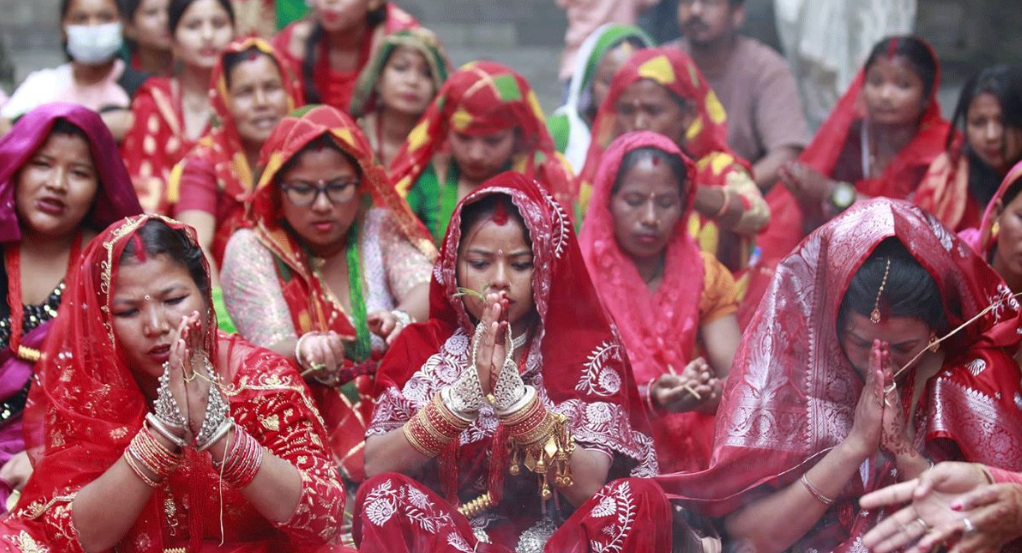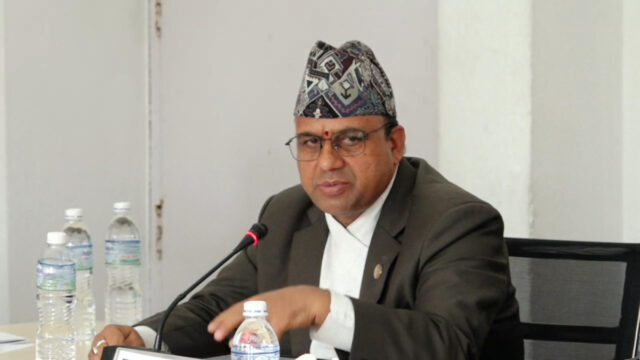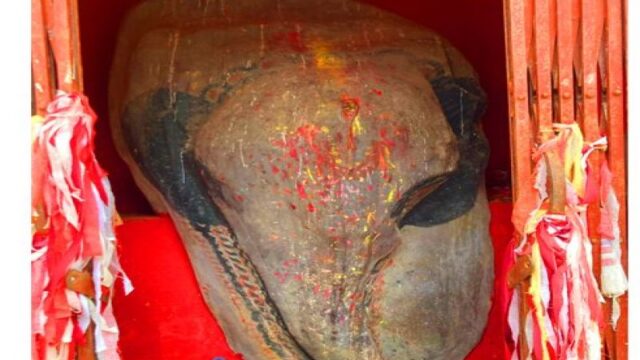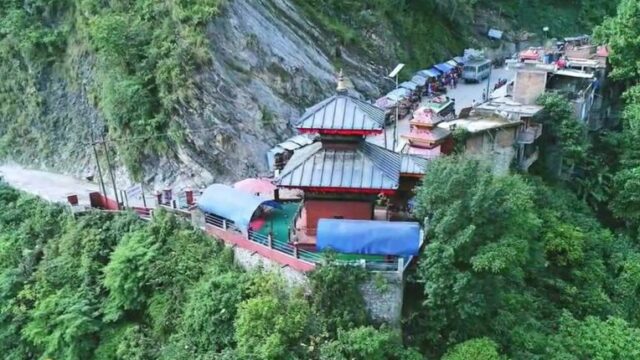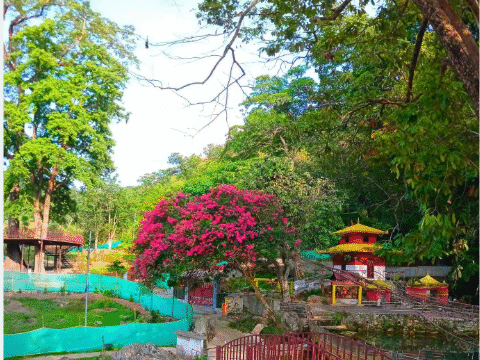The Jitiya festival, an important cultural and religious event celebrated in the Mithilanchal region, has officially begun today with a 36-hour long waterless and foodless fast starting at 4 a.m. This fast observed for the longevity of children, the blessing of sons, and family well-being, is practiced widely in areas like Mahottari and other parts of Mithilanchal.
According to religious tradition, participants begin the festival by cleansing themselves with a ritual bath (locally known as “Naha Kha”), which commenced on Monday. The fast, which started today at 4 a.m., will continue until 5 p.m. on Wednesday. During this period, participants refrain from consuming food or water.
Based on the Mithila Panchang, as noted in the Shri Janaki wall calendar, the festival follows a specific ritual process. On Monday, participants engage in ‘Oghatan,’ a ritual meal, followed by the strict fast today, and the festival will conclude on Wednesday at 5 p.m. with the final purification rites, known as ‘Vrat Paran.’
According to Pandit Upendra Pathak, a priest at the Jaleshwarnath Mahadev Temple, after completing the Naha Kha ritual on Monday, women took a ritual bath in local rivers, ponds, or lakes, offering symbolic food items such as beaten rice, yogurt, amot (a mango-based dish), and pinda (a ceremonial dish) to Jitumahan (the deity worshipped during Jitiya) and their deceased ancestors. These offerings are then shared with their families before the women themselves partake in the meal.
Hundreds of devotees from the region gather at sacred sites such as the Bigi, Rato Jangha, and Ankushi rivers, and ponds like Laxmi Sagar, Varunasagar, and Bhargavasar to hear the sacred stories of Jitumahan. Pandit Pathak explained that the tradition involves elders narrating the story, while the younger generation listens attentively.
On the first day of the festival, after the initial puja, it is customary to eat millet bread (locally called ‘Machha Maruwa’) with leafy greens and fish. This ritual meal is an integral part of the Oghatan ceremony. Women are required to finish this meal before the crows begin to caw at dawn, signaling the start of the fast. The observance of this fast is regarded as the core aspect of the Jitiya festival, according to Pandit Pathak.
Jitiya, celebrated on the Aswin Krishna Paksha Ashtami, holds great significance in the Mithilanchal region, as explained by Pandit Badrinath Jha of Jaleshwar Municipality. He highlighted that the fast, which ensures the well-being of children and family, has deep religious, cultural, and tantric importance.
Professor Dhruv Ray of Yalna Sanskrit Vidyapeeth in Matihani emphasized the role of women in preserving cultural values and their devotion to this fast. “This festival reflects the cultural role, significance, and faith of women in Mithila,” he said, adding that women also offer pinda (ceremonial offerings) in remembrance of their deceased ancestors during this festival.
The Jitiya fast is considered sacred among the various fasts observed in Mithilanchal. According to ancient mythology, the festival is connected to the story of King Shalivahan, who rescued seven sons from a demon, earning the name ‘Jitumahan.’ Women began observing this fast in his honor, praying for the safety and long life of their children, Professor Ray explained.
The festival remains an essential part of the Mithilanchal region’s cultural and religious landscape, fostering a sense of unity and devotion among the participants.
